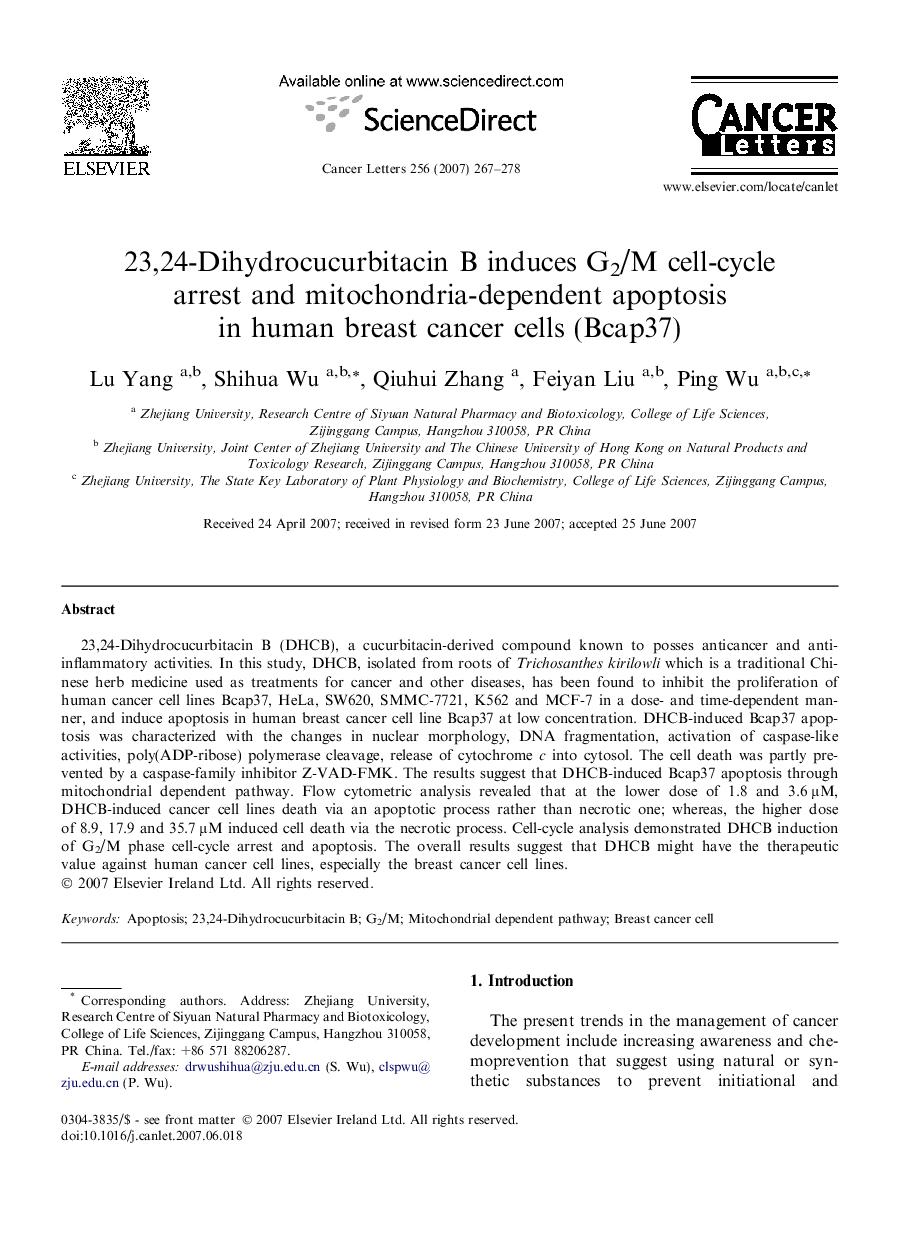| Article ID | Journal | Published Year | Pages | File Type |
|---|---|---|---|---|
| 2115259 | Cancer Letters | 2007 | 12 Pages |
23,24-Dihydrocucurbitacin B (DHCB), a cucurbitacin-derived compound known to posses anticancer and anti-inflammatory activities. In this study, DHCB, isolated from roots of Trichosanthes kirilowli which is a traditional Chinese herb medicine used as treatments for cancer and other diseases, has been found to inhibit the proliferation of human cancer cell lines Bcap37, HeLa, SW620, SMMC-7721, K562 and MCF-7 in a dose- and time-dependent manner, and induce apoptosis in human breast cancer cell line Bcap37 at low concentration. DHCB-induced Bcap37 apoptosis was characterized with the changes in nuclear morphology, DNA fragmentation, activation of caspase-like activities, poly(ADP-ribose) polymerase cleavage, release of cytochrome c into cytosol. The cell death was partly prevented by a caspase-family inhibitor Z-VAD-FMK. The results suggest that DHCB-induced Bcap37 apoptosis through mitochondrial dependent pathway. Flow cytometric analysis revealed that at the lower dose of 1.8 and 3.6 μM, DHCB-induced cancer cell lines death via an apoptotic process rather than necrotic one; whereas, the higher dose of 8.9, 17.9 and 35.7 μM induced cell death via the necrotic process. Cell-cycle analysis demonstrated DHCB induction of G2/M phase cell-cycle arrest and apoptosis. The overall results suggest that DHCB might have the therapeutic value against human cancer cell lines, especially the breast cancer cell lines.
